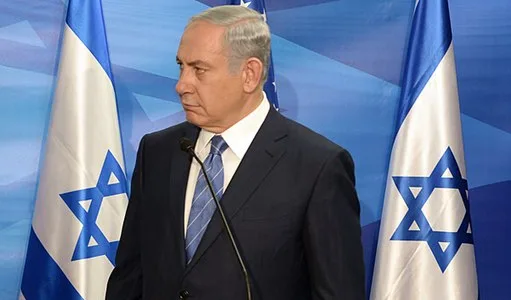Israeli authorities emphasize restraint after rocket strike kills children in the Golan Heights, aiming to prevent further escalation
In the wake of a tragic rocket attack from Lebanon that claimed the lives of children in the Golan Heights, Israeli officials are signalling their intent to avoid a full-scale war with Lebanon. The rocket strike on July 28, 2024, hit a soccer pitch in Majdal Shams, a Druze village in the Israeli-occupied Golan Heights, leading to the deaths of several children and prompting a strong response from Israeli authorities.
Israeli Prime Minister Benjamin Netanyahu and Defense Minister Yoav Gallant have both expressed their commitment to managing the situation with caution. Despite the severity of the attack, which has been condemned both domestically and internationally, Israeli officials are emphasizing restraint and seeking to avoid an all-out conflict with Lebanon.
Embed from Getty Images“We are committed to responding to this act of violence decisively but responsibly,” Netanyahu said in a statement. “Our goal is to ensure that those responsible are held accountable while avoiding unnecessary escalation that could lead to a broader conflict.”
The rocket attack, which has been widely reported and condemned, has intensified the already strained relations between Israel and Lebanon. The incident has sparked outrage among Israelis and has led to a call for retribution against those behind the attack. However, Israeli military and political leaders are balancing this demand with the need to prevent further violence and instability in the region.
Defense Minister Gallant reiterated the government’s position on avoiding a large-scale military response. “While we will take appropriate measures to address this aggression, our focus remains on preventing further violence and maintaining regional stability,” Gallant stated.
The attack occurred amidst heightened tensions in the region, with recent clashes and skirmishes along the Israel-Lebanon border. The incident has brought renewed attention to the fragile ceasefire and the ongoing challenges of maintaining peace along the volatile border.
In the wake of the attack, Lebanese officials have condemned the violence and have called for restraint on both sides. Lebanese President Michel Aoun and Prime Minister Najib Mikati have both urged for de-escalation and have promised to cooperate with international efforts to prevent further conflict.
International Response The international community has expressed concern over the potential for escalation following the rocket attack. United Nations Secretary-General António Guterres has called for calm and urged both Israel and Lebanon to exercise restraint. The UN has offered to mediate and assist in de-escalating the situation.
Humanitarian Impact The attack has also drawn attention to the humanitarian impact on the local population. The loss of young lives has deeply affected the community in Majdal Shams, leading to widespread grief and mourning. Efforts are underway to provide support and assistance to the affected families and to address the emotional and psychological impact of the tragedy.
Political Implications The incident has political ramifications both within Israel and Lebanon. In Israel, the attack has fueled calls for a strong military response, while the government’s emphasis on restraint has sparked debate among political leaders and the public. In Lebanon, the government faces pressure to address the situation and to prevent further violence.
Analysis
Political
The Israeli government’s emphasis on restraint and its effort to avoid a full-scale war with Lebanon reflects the complex political dynamics in the region. Balancing the demands for retribution with the need to prevent broader conflict poses significant challenges for Israeli leaders. The situation also highlights the delicate nature of Israel-Lebanon relations and the potential for political instability.
Social
The rocket attack and its aftermath have significant social implications, particularly for the communities affected. The loss of children and the impact on families and local communities in the Golan Heights are profound, contributing to heightened tensions and grief. The response from both Israeli and Lebanese societies will shape the trajectory of future relations.
Racial
The attack has racial and ethnic dimensions, particularly considering the Druze community in Majdal Shams and the broader implications for Israeli and Lebanese populations. The impact of the attack on specific communities highlights ongoing tensions and divisions within the region.
Gender
While gender is not a central focus in this specific case, the impact on families and communities, including women and children, is significant. The tragedy of losing young lives has a profound effect on the broader societal fabric and the response to such incidents.
Economic
The potential for escalation and conflict has economic implications, particularly for the region’s stability and security. The costs associated with military responses, humanitarian aid, and the broader impact on regional stability could affect economic conditions in both Israel and Lebanon.
